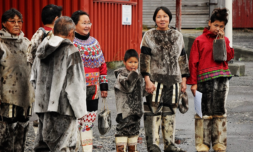The Treaty Principles Bill, introduced by the ACT Party, has sparked heated debate in New Zealand, raising concerns about its potential impact on Māori rights and the foundational partnership established by the Treaty of Waitangi.
In recent days, New Zealand saw peaceful protests with tens of thousands of people marching in Wellington and other cities. Seen as a powerful expression of Māori identity and resilience, the protests stood against the potential revision of one of the nation’s vital documents.
The Treaty of Waitangi, known in Māori as ‘Te Tiriti o Waitangi’, is a foundational document in New Zealand’s history, signed on February 6, 1840. It represents an agreement between the British Crown and various Māori chiefs from the North Island, establishing a framework for British governance while recognizing Māori rights to their lands and resources.
In the late 1830s, increasing numbers of British settlers were arriving in New Zealand, leading to concerns about land transactions and potential French colonization. Māori leaders sought protection from the British against these threats and lawlessness among settlers. The British government decided to negotiate a formal agreement to establish New Zealand as a British colony, which culminated in the Treaty of Waitangi.
The Treaty consists of a preamble and three articles, which differ significantly between the English and Māori versions. Firstly, in terms of sovereignty, the English version cedes ‘all rights and powers of sovereignty’ to the Crown. In contrast, the Māori version uses the term kawanatanga (governance), suggesting that Māori believed they were retaining authority over their affairs.
As for land rights, the English text grants the Crown an exclusive right to purchase Māori land, whereas the Māori version guarantees tino rangatiratanga (full authority) over their lands and treasures. Lastly, both versions assure Māori full rights as British subjects.
However, its implementation has been fraught with challenges. Many of the rights promised to Māori were not honored in practice, leading to significant land loss and social unrest. This dissatisfaction contributed to conflicts such as the New Zealand Wars in the 1860s.
In response to historical grievances, the Waitangi Tribunal was established in 1975 to investigate breaches of the Treaty and recommend reparations. Over 2000 claims have been made, resulting in various settlements aimed at addressing past injustices.




















